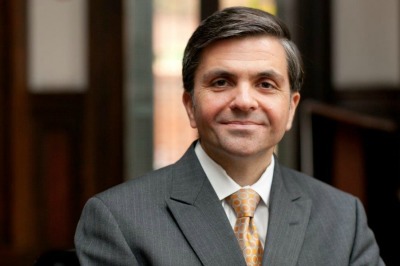Muslim chaplain at Methodist school?

United Methodist affiliated Shenandoah University in Winchester, Virginia has announced its first ever non-Christian chaplain in 150 years, hiring an Islamic woman as Muslim Community Coordinator.
The school’s dean of spiritual life, who’s an ordained United Methodist, explained:
Shenandoah is open to people of all faiths, or no faith, exploring their belief system and being leaders in this world for the greater good. Hanaa [Unus] provides the opportunity to be what we always say we value, and that’s a place that cherishes religious diversity.
The hiring raises interesting questions about church affiliated schools and the extent to which they should teach Christianity versus wider pluralism. Recently United Methodist affiliated Emory University hired a Unitarian Universalist as its senior chaplain. Should chaplains at church related schools believe in the deity of Christ?
United Methodism has over 100 universities and colleges. But very few of these schools have, dating back many decades, taken very seriously their church association. Undoubtedly very few students at universities such as Emory, Duke, Boston, Northwestern, American or many others are remotely aware of the largely unacknowledged church affiliation. These schools function as mostly secular places.
Rare acknowledgement occurred earlier this year when United Methodism at its February General Conference reaffirmed traditional Christian sexual standards, prompting denunciation from many of the church’s schools, including Shenandoah. Several schools have already formally disaffiliated from the denomination or are planning to. In the coming division within United Methodism between USA liberalism and global orthodoxy, probably only a few schools in the USA will affiliate with the global orthodox form of Methodism.
Almost certainly Shenandoah University, after the schism, will affiliate with the new liberal Methodist denomination, if it affiliates at all. The school’s news release explains about hiring a Muslim chaplain: “We’ve always wanted to be more inclusive and more diverse.” But how diverse are they really?
Shenandoah University’s Office of Spiritual Life includes a cleric from the Church Within a Church, an LGBTQ advocacy group. There are six listed staffers in Shenandoah’s Office of Spiritual Life. Are any NOT progressive? Do any defend United Methodism’s and historic Christianity’s definition of marriage? Would a traditional Catholic or an Evangelical find any kindred spirits in this office? Does “diversity” include traditionalists? Or does “diversity” mean only progressives are truly welcome?
It’s my strong guess that many if not most actively religious students at Shenandoah University are probably more traditional than liberal. Where do they find their spiritual encouragement? The answer is probably at Winchester’s many churches, not on campus.
Does Shenandoah’s new Muslim chaplain support traditional Islamic beliefs about marriage and gender? If so, will she openly espouse these beliefs, which are closer to official United Methodism than what’s evidently espoused by her new colleagues at Shenandoah in the Office of Spiritual Life? Often liberal Christians will better tolerate traditionalism from other religions than from Christians.
If the new Muslim chaplain is progressive, and she doesn’t support Islamic teachings on marriage and gender, how effective will she be in her outreach to other Muslims? In the Shenandoah news release, she’s quoted:
Hopefully, if students can learn about different faiths and different cultures, they can go out into the diverse world and be the change-makers Shenandoah hopes they will be.
What does Shenandoah University’s Office of Spiritual Life mean by “change makers?” Traditional Methodists believe change makers preach Christ and seek a society reformed through the Gospel. But judging from at least its website and social media, Shenandoah’s chaplains have a vision of social change that’s closer to contemporary secular progressivism.
As United Methodism divides and reconfigures, traditionalists will have to think through what effective Christian education in universities and colleges should entail. One hundred years of spiritual and intellectual drift in United Methodist schools should instruct us what not to do. Where are the models for effective and comprehensive Methodist education in universities and colleges?




















